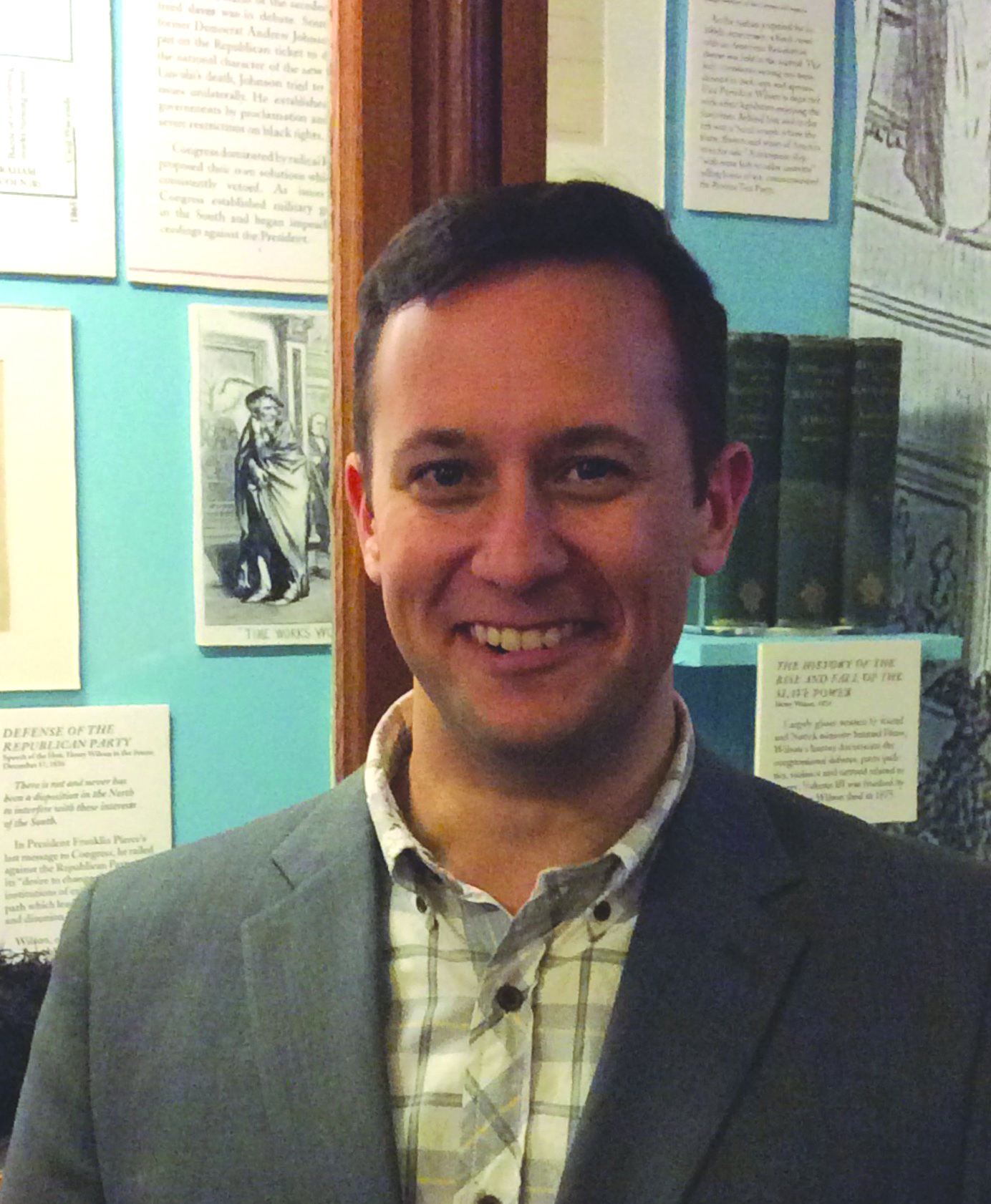For nearly a century and a half, the Natick Historical Society (NHS) has served as a community resource center for the town. Located at 58 Eliot St., the society contains thousands of documents, objects and other artifacts that shed light on Natick’s history and culture. In October 2016, NHS welcomed Aaron Dougherty as its new executive director. He brings a wide range of experience to the society and offers an inclusive vision for its future.
Diverse Narratives
After graduating with a master’s in history from Eastern Michigan University in 2010, Dougherty relocate to New England. Over the past six years, he has worked at a number of historical organizations in Massachusetts, including Plimoth Plantation and the Boston National Historical Park. His most recent position was executive director of the 1699 Winslow House in Marshfield.
“What drew me to NHS was the opportunity to talk about the history of an entire town rather than just one family or one household, as we were often doing at my last job,” Dougherty said. “I am interested in identifying many groups of people who have made Natick what it has been and is today, and talk about the people who have moved here over the centuries.”
Dougherty sees different perspectives as the key to better understanding history, whether researching one family or an entire town. “At the Winslow House, we talked mainly about the rich white gentlemen who had owned the house over the years. What we tried to do was move beyond that and talk about women, children, servants and slaves in the house, and try to give voice to as many different people as possible,” he explained. “That’s what I’d like to do at NHS as well.”
Student Civil War Project
A new collaboration with Natick High School aims to put these values into practice. NHS will focus on the Civil War era with the students, providing documentation and resources from Natick’s history during this time period.
“One of the documents we have is a list Natick African-American residents who lived during the Civil War, as well as a list of white Natick residents who served with African American units as officers,” Dougherty said.
“I’m hoping that we can try to find some primary sources that talk about the way that these different groups interacted during this very traumatic time in our history,” he said. Shedding light on relationships between people of different races in the past may prove to be a valuable guide for today’s student relationships.
More Ways to
Experience History
A new website for NHS is in the works, and the results of the Natick High School collaboration will be posted online for the public to access, along with additional materials that may be of interest to residents. Residents may also visit the Historical Soceity to attend programs and exhibitions, or to simply browse the collections.
The society also features an off-site History Book Club, which is co-lead by NHS Curator Ben Federlin and Caleigh Ross, a Library Assistant at the Bacon Free Library. The club takes place on the third Tuesday of each month from 1 p.m. to 2 p.m. at the Natick Community-Senior Center. February’s event will feature a discussion of The Underground Railroad by Colson Whitehead.
“We generally alternate between non-fiction and historical fiction to appeal to a variety of tastes, and we vary the historical era and topic as well, always looking for thought-provoking topics and titles,” Ross said. “It has been wonderfully successful since its inception. Attendance is usually between 11 and 15 people, and it is always a lively discussion!”
For more information about the NHS, the History Book Club, and other upcoming events, visit www.natickhistoricalsociety.org.

Issue Date:
January, 2017
Article Body:
